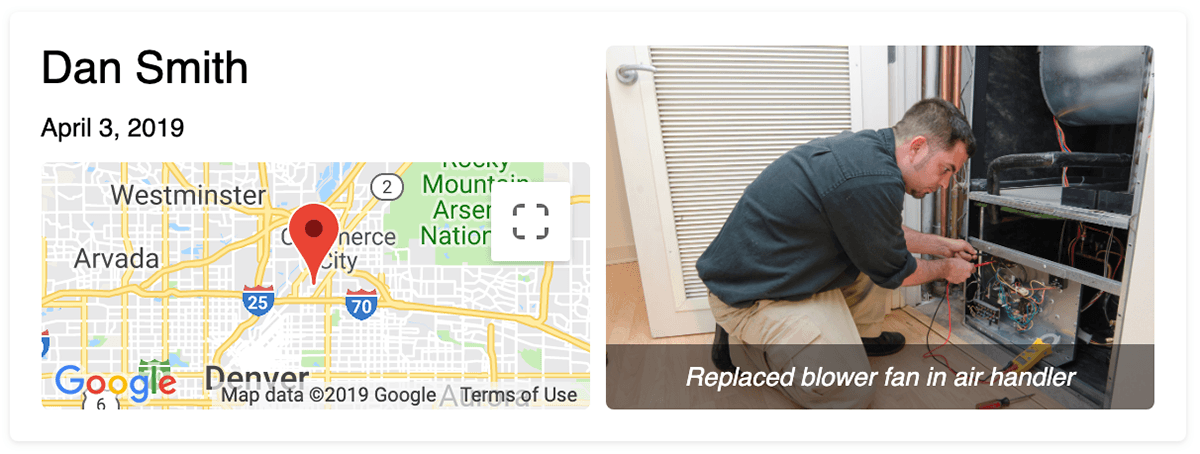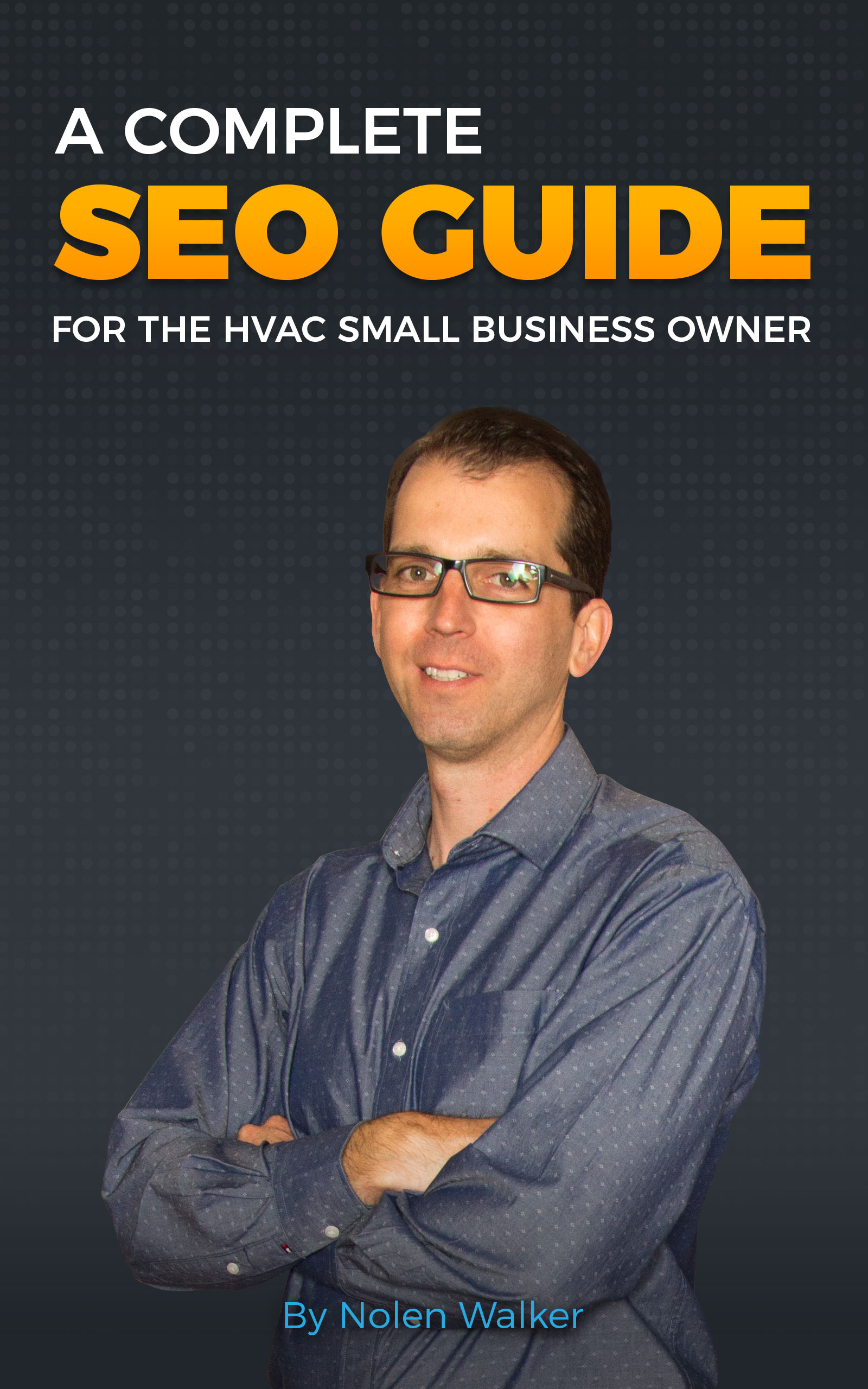
HVAC SEO Services Based on 10+ Years of Experience
Hey, I’m Nolen Walker, the founder of HVAC Webmasters. For over ten years, I’ve used HVAC SEO to help companies consistently rank #1 on Google search results. My agency is HVAC Webmasters, and we provide a comprehensive suite of SEO Services that empower our clients to generate a consistent stream of high-quality HVAC Leads.
With more than a decade’s worth of first-hand experience working with heating and cooling businesses, my process is proven to deliver consistent results on Google and other search engines. Each of our clients receives a custom website, Datapins, our Local SEO software, on-page optimization, original content writing, and much more!
The HVAC Webmasters Podcast
The Team at HVAC Webmasters discusses some of the most important topics in digital marketing. If you are interested in improving areas of your online presence, give us a call today at (800) 353-3409.
CONTACT US

Get More Reviews - Simplifies the Process of Getting Reviews for Contractors
GEO Location Check-ins - Enhance Local SEO Results with Check Ins
Email & Text Clients - Link Them Directly to Review Platforms like Google, Facebook and Yelp
Post Job Pics - Automatically Update Your Service Pages with Pictures from Your Jobs!
Manage Your Online Reputation - Your Reviews Can Promote and Go to Work for Your Company!
Map Pins - Your Website Can Pin Your Job sites with Geo Coding
Higher Map & Organic Rankings - DataPins Go to Work for You
Google Responds - Your Reviews, Geo Locations, and Photos Can Help Your Standing with Google
Find out more about why Datapins benefits your business when you CLICK HERE.

Click Here To Buy the Book
Custom SEO Strategies from HVAC Webmasters
I tell my clients that online success starts with a comprehensive search engine optimization strategy. The success rate with SEO for HVAC contractors is lower than it should be because of dishonest providers utilizing shady tactics. Effective SEO starts with keyword research and URL mapping. At HVAC Webmasters, we identify target keywords and separate them into categories. Next, we map each category to a unique URL. Then, our research team analyzes extensively with keyword tools like MOZ and SEMRush to gauge volume and competition.
Our research determines which keywords your HVAC company should target online. However, my team’s 10+ years of experience and extensive training allow us to avoid common pitfalls of keyword research. For example, some agencies look only at search volume, a misleading metric for location-specific keywords. As Google explains in its March 2024 Core Update, your HVAC website must meet the user intent of your consumers. For example, HVAC contractors in Dallas, TX, should create content for individuals within the DFW Metroplex. A keyword like Dallas AC Repair is valuable in this context. However, the keyphrase DIY AC Repair is not. These nuances are critical to a successful HVAC SEO campaign.
GET STARTED!- Industry Keywords The HVAC industry has thousands of keyword opportunities. There are so many specific HVAC services and an endless pool of consumers looking to find them. As you might imagine, keyword volume can fluctuate based on the season. The term “ac repair” is more popular in summer, while “heating repair” gets more traction during winter. Keyword research tools have become comprehensive in recent years and provide metrics like difficulty, competition, and local demand to help craft your ideal HVAC SEO strategy.
- Local Keywords As a local contractor, your website and Google Business Profile should target local terms. Most of your customers search Google through their mobile devices, and their current location and your listing’s relevance and prominence determine the Maps results. As a result, you should include local terms within your target keyword. When combining local keywords with industry keywords, you’re creating long-tail keywords. These typically have less volume than national terms but also meet user intent more specifically.
- Secondary Keywords Building topical authority within a larger category can be helpful to the overall health of a website. If you offer specific HVAC services like AC coil replacement, it’s important that your website mentions this service. Our DataPins software allows contractors to showcase all these services based on real jobs. For instance, after performing an electric furnace repair in a nearby city, DataPins will push your job information to your website, allowing Google to crawl the fresh content.
- URL Hierarchy / Structure Creating a website structure that is easy for Google to crawl is one way to ensure smooth indexing of search results. Each of our websites includes an XML sitemap to assist with this process. We also publish parent and child pages for a silo structure.. An example of a child page would be yourwebsite.com/services/ac-repair. A clear and logical URL structure is part of the SEO strategy and is based on keyword research and relevance.
- Website Images Publishing high-quality webp format photos on your company website helps SEO. Pictures of your employees, facilities, and equipment have the most impact. These images are easier than ever to create, with most smartphones now having cameras and the ability to send pictures to others. Most small businesses incorporate images with their social media pages, which should also extend to your website. Images should be pre-approved as part of your Local SEO strategy.
Call the HVAC Webmasters at (800) 353-3409 Today!
HVAC SEO Keyword List
Our services target commercial intent keywords to help our clients generate as many leads as possible. Some marketing services ask their clients to “pick keywords” … or target informational keywords like “how to fix my air conditioner.” These types of tactics can lead to traffic and rankings but fail to deliver conversions. As a result, your agency can point to vanity metrics like total traffic to justify its prices while failing to deliver new customers to your business. We don’t limit your website to a set number of keywords. We partner with your company for sustainable business growth.
In recent years, Google has recalibrated its standards and placed far greater value on quality content that educates and informs readers than content that aims only to rank on search. In 2022, Google released its Helpful Content Update, which targeted content created for search engines rather than people. Unfortunately, HVAC companies have been slow to adjust to that update and subsequent updates that have further cracked down on unhelpful content. HVAC Webmasters clients receive content reduction and enhancement assistance to improve SEO performance in 2024. My team is constantly updated on the latest industry standards, empowering us to evolve alongside Google.
Keywords WITH Commercial Intent
- ac repair near me
- air conditioning repair service
- a/c repair
- central air conditioning repair
- emergency ac repair
- furnace repair near me
- furnace repair companies
- hvac services near me
- hvac installation services
Keywords WITHOUT Commercial Intent
- ac troubleshooting tips
- diy hvac repair
- fix an ac
- fixing ac condenser
- home ac repair diy
- how to fix an ac unit
Future customers are more likely to search for commercial intent keywords. In contrast, informational keywords are primarily searched by people not interested in buying your services. Many of them seek do-it-yourself tips (DIY) rather than services. Informational website traffic is less valuable because it generates fewer leads. When companies optimize websites to target informational intent keywords, they cite high-traffic numbers through Google Analytics reports. However, none of that traffic will convert. HVAC SEO Webmasters optimizes for target keywords with high conversion potential.
LEARN MOREA Proven SEO Process Specifically Crafted for HVAC
SEO is easy to understand when separated into categories. The HVAC SEO process has several elements that work together to improve your rankings. For example, on-page SEO and off-page SEO are both critical ranking factors. On-page SEO deals with your website, and off-page SEO deals with your business listings, backlinks, etc. Your HVAC business can benefit from broader search visibility through search engine optimization.
My HVAC SEO strategy is proven to work at scale. My agency has improved rankings for thousands of contractors over the past decade while constantly monitoring performance. SEO is not something to make up as you go along. Google Analytics and Search Console provide concrete HVAC SEO campaign data. Remember that Google’s algorithm constantly evolves, so changes will be constant.
CONTACT US!- Custom Web Design A website is the foundation of an HVAC company’s online presence, and it is critical to SEO success. Once potential customers visit your HVAC website, they will form an opinion in seconds. If the opinion is favorable, they will stick around; if not, they are gone just as quickly as they entered and will move on to the next search result. Multiple design elements influence user experience, but customization is one of the most important. Websites built by professional designers look more appealing than templates, and Google can more easily index them, especially if they utilize a microdata code language like schema.org. Aesthetics, display, responsiveness, and navigation are other critical factors in website design. However, without a strong code base, elements that would otherwise engage a user remain unseen.
- Calls To Action (CTA) CTA or calls to action inspire visitors to enter what is known as a sales funnel. A CTA can be anything from a clickable phone number to a sign-up here button. They are entering some portion of the sales funnel, whether directly calling your office line or signing up for an email newsletter. When including CTA on a website, there should be clear urgency and incentive. The action should be as convenient as possible and require little thinking or effort. An example of this would again be the clickable phone number that a mobile user could simply click on to connect directly to your office line, possibly becoming a sale in minutes.
- Accolades Any awards or certifications possessed by your HVAC company should be displayed on the website. The same is true of publications in which you were featured. Certifications include the Better Business Bureau Accreditation and the Angie’s List Super Service Award. As for publications, any local newspaper or blog that conducted an interview with you or one of your employees can be added to the “featured on” section of your website. Displaying badges is all about instilling trust in your potential customers as they browse your website and form a more informed opinion about your business.
- Reviews As a local HVAC contractor, you probably understand the importance of online reviews, especially on Google and Facebook. However, the reviews displayed on your website can also be helpful. Luckily, there’s a way to leverage and showcase Google and Facebook reviews on your website. On-site testimonials help contractors because they populate your company site with user-generated content. Google loves nothing more than content about your business generated by actual customers. Since Google and Facebook require review verification, visitors will be confident in the legitimacy of the testimonials, as opposed to if they were just copied & pasted from another source. The DataPins widget from HVAC Webmasters integrates external reviews from reliable sources.
- Mobile Optimization Most visitors find your website on their mobile devices. In 2024, internet access for the average person is 24/7. They have a smartphone on them at all times and can surf the web at any point throughout the day. Knowing this, a website should always be optimized with mobile in mind. The mobile-first index update from Google confirms the prioritization of mobile websites and encourages webmasters to pay close attention. Several steps can be taken to enhance a mobile page, including simple navigation, responsive design, and interactivity. In contrast, qualities that might discourage a mobile user include slow site speed, image distortion, and narrow or oversized viewports. These should be avoided or corrected if applicable.
- Google Analytics Website reporting is made possible with Google Analytics. By installing tracking code within a website’s HTML, Google can track visitors, and webmasters can analyze trends. Access to such reliable information (consider the source) can help instruct how to improve your Local SEO, CRO, and general user experience. Reporting on Google Analytics is made simple, especially with what is known as the Acquisition Report. The AR reveals how many visitors access your website per month, week, and even day. Furthermore, it breaks down the source of the traffic by organic, referral, and direct. With data coming straight from the ultimate authority (Google itself) the numbers can be trusted and used to conduct ongoing improvements.
- SSL Security SSL or secure sockets layer is a security protocol for website domains. Part of user experience is the visitor’s feeling of security or lack thereof. Secure URLs are https:// while “insecure” ones are https://. If your website is the latter, most browsers will warn the user that the site is insecure. This clearly discourages a favorable user experience and, in fact, encourages the would-be visitor to abandon their entrance into your sales funnel. Since SSL influences user experience, its impact on SEO is legitimate, even if technically indirect. Again, all of these finer details combined make a large difference.
- Call Us Today! Don’t wait any longer. Call us now. You can’t afford to miss out on all the benefits you’ll get once you sign up with the HVAC Webmasters. (800) 353-3409
Call HVAC Webmasters at (800) 353-3409 Now to Get Started!
“A New Standard of SEO for HVAC Companies”
HVAC Webmasters is considered among the best SEO companies for small businesses. Having helped HVAC companies reach their fullest potential since 2013, we’ve established ourselves as a trusted service that contractors can rely on. Our niche specificity also separates us from other general marketing firms. We deal with HVAC contractors personally, so we understand the market better than most. Call (800) 353-3409 now to ask our owners personally about evidence of HVAC Webmasters’ excellence.
We treat each company as a unique and valued customer!
GET STARTED!On-Page SEO for HVAC Contractors
Most people with general knowledge of SEO are most familiar with on-page SEO. That’s because keyword placement, meta descriptions, title tags, and header tags are the most widely referenced aspects of search engine optimization and are all on-page elements. The term on-page SEO is self-explanatory, referring to search engine optimization performed directly on a webpage. Using keywords identified in the research and planning stage, on-page SEO empowers you to begin to implement them onto your pages. These tasks are made simpler with WordPress and the plugin Yoast, which allow keywords, meta descriptions, headers, and title tags to all be entered without knowledge of HTML.
SEO does not work overnight, but it has a chance to become the most consistent and sustainable digital asset for your business. Pages that optimize today might be lead generation funnels in years ahead. Pages can establish trust over time, mostly by tenure and link building, along with user behavioral metrics that indicate a favorable user experience. The more efficiently and precisely on-page SEO is executed, the more valuable the page becomes, especially as a long-term business asset. On-page elements also set the stage for implementing off-site and technical aspects of SEO.
- Keywords (On Page) On-page SEO is where keywords show their worth. We input keywords into several areas on a page, including meta descriptions, title tags, header tags, image alt text, and body content. In each case, placing the keyword at the beginning of the sentence optimizes it more. However, Google strongly discourages keyword stuffing. So don’t overdo the title or header tags with keyword-stuffed headlines. As for the paragraph (body content), keep the keywords to a minimum. You want to use them naturally while supplementing the exact terms with synonyms.
- E-E-A-T Earning credibility online requires content produced for readers, visitors, and consumers instead of search engines. The days of tricking Google with keyword density and machine-generated content are long gone. My agency produces highly relevant content based on your company’s experience, expertise, authority, and trustworthiness (E-E-A-T). In the era of ChatGPT and other AI content generation tools, the premium on original, unique, and valuable content is higher than ever. That’s why my DataPins tool ties in directly to your HVAC jobs throughout various service areas to showcase authentic and helpful content for nearby consumers.
- Title Tags An SEO Title is known as a Title Tag, and it’s the main title of your webpage that appears on Google SERPs. It is the most basic way to tell the user and the search engine (Google) what your website is about. That’s why it should be relevant, topical, and indicative of what the page is about. In addition to those qualities, an SEO title should also encourage CTR. The Click-through rate is the ratio by which users who see your result actually click on it. Adding an enticing headline to your title tag can encourage them to click through. However, ensure the title is representative of the page rather than clickbait. An example Title Tag for a local HVAC contractor is Dallas AC & Heating Services | 24/7 HVAC Repair. The first part of the title tag has the keyword “Dallas AC & Heating,” while the second part entices the user to click through.
- Meta Descriptions Every search result shows a description underneath the Title Tag. Meta Descriptions should be between 150 and 160 characters to guarantee proper display without being cut off. The meta description expands the title tag and provides more space to educate the user about your webpage. For example, with the title tag, you want at least one keyword within the description. You can also add a phone number to your meta description to display your contact info before the user enters the site.
- H1, H2, H3 Tags Headers help organize and format on-page content while influencing SEO. For example, MOZ concludes that placing a keyword in the H1 tag is a Google ranking factor. The H1 is the largest of the header types. There are also H2s, H3s, and in some cases, H4s, H5s, and H6s. How many heading types are available depends on the web designer’s CSS style sheet. The H1 and H2 are the most important for Local SEO, while the others help organize content and enhance the user experience.
- Permalinks The end of a page URL is known as a slug. The link becomes known as a permalink when a slug is added and published. If you publish a page on AC repair, the URL will read yourwebsite.com/ac-repair, which would be its permalink. As you might have gathered from the name, a permalink is permanent. Once published, it cannot be changed without creating all kinds of crawl errors on your website — none of which help SEO and can cause new problems. So, choose a permalink that best matches the page topic. If it contains a keyword, that’s ideal, and try to keep it as short and concise as possible.
- Image Alt Text While strong visual components enhance user experience, an image’s Alt Text greatly impacts SEO. Properly naming the image file and adding the alt text once uploaded to WordPress is the most effective SEO strategy. File names should be written in lowercase with dashes. If you have an image of your HVAC truck, the image file should be hvac-company-truck.jpg or something similar. Once uploaded, the Alt Text should be edited to say Company Name Truck. This process should be repeated with all of your on-page images.
- Ready to Get Started? Call the professionals at so we can answer any of your questions and get you signed up today! (800) 353-3409
Off-Site SEO for HVAC Companies
Many of the elements that impact search ranking take place away from the website. These elements are known as off-site SEO factors. When Google launched, the ranking algorithm was simplistic and relied almost entirely on inbound link signals. It was a simple measure of trust and relevance but prone to exploitation. Today, Google’s ability to measure links is much more sophisticated. Still, links remain a ranking factor, but only those earned legitimately have an SEO impact.
Link earning is an organic process based on creating and marketing the highest-quality content assets so that other websites will naturally link back to them. Today, there are ways to market content that were not possible a decade ago. For instance, social media platforms like Facebook and YouTube give contractors an opportunity to post links to blog posts, pages, and services and hopefully expand brand awareness.
- Social Media Platforms like Facebook, Instagram, TikTok, LinkedIn, and YouTube are consumed by millions of users each day and provide a platform where local businesses can promote themselves. Because these platforms have massive followers and communities, there’s a great incentive to join them. Google also uses social signals as an SEO ranking factor.
- Inbound Links Google values links of quality and relevance. Quality is determined by the authority of the linking domain provided, while the link’s context determines relevance. The most sustainable way to earn links is by creating and promoting great content online. If your content provides value, other websites will look to reference it in their own content.
- NoFollow Links Links from social media are tagged as NoFollow links. While they provide indirect SEO value, they are not considered a vote of confidence because the user creates these links manually. Although NoFollow links don’t impact metrics such as Domain Authority, they still have indirect value and should not be ignored or minimized.
- DoFollow Link Building DoFollow links, sometimes called simply Follow links, influence link metrics like Domain Authority. A DoFollow link is considered a vote of confidence from one domain to another. Unlike social platforms, links like these must be inserted by the web administrators themselves and are sometimes called editorial links. An editorial placement on a high-authority website can give your page a significant SEO boost.
Call the HVAC Webmasters at (800) 353-3409 to Learn More!
HVAC Webmasters: Your 2024 SEO Company
HVAC Webmasters has more than a decade of experience helping HVAC companies rank online. We understand the evolution of Google’s algorithm and constantly stay on top of its changes. Our success is proven by hundreds of loyal clients who continue to utilize our marketing services. HVAC Webmasters’ differs from general SEO companies that lack a clear understanding of the industry. Focusing on the HVAC niche is advantageous because not all marketing strategies are applicable across industry lines. We work with contractors and know what helps them reach their digital marketing goals in 2024.
When I first started my agency, I set out to build a white-hat SEO company that follows Google’s guidelines to the letter. With this in mind, my agency refrains from black-hat SEO tactics that risk search engine penalties. There will always be some SEOs attempting to trick the algorithm, but it presents a significant risk to their client and is not something we recommend to any HVAC company. Our tested and proven SEO strategies are built to last and serve as a long-term business asset.
I consider my agency to be the most elite HVAC SEO company in the country. With hundreds of clients already signed up, we have helped launch, expand, and sustain the brands of countless contractors throughout the United States. Our core principles attract hard-working contractors to our services, and our openness to executing their vision keeps them satisfied.
GET STARTED!





